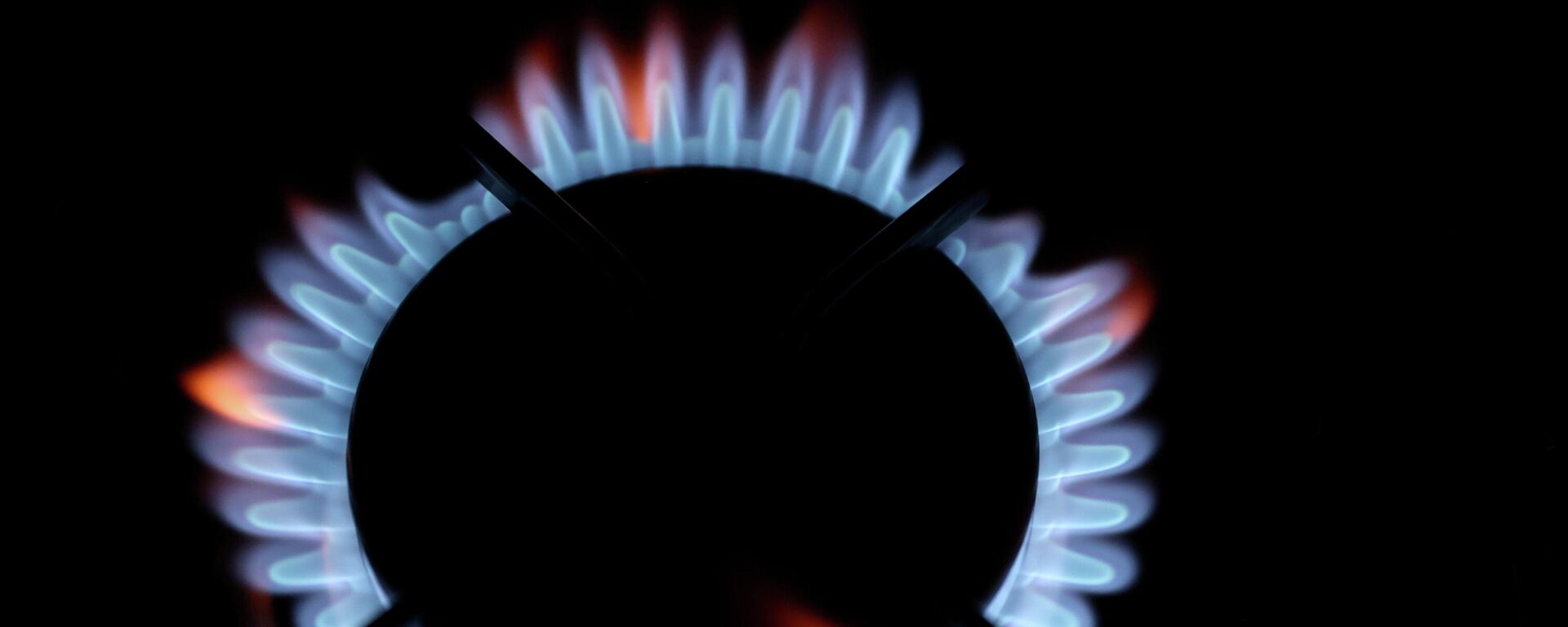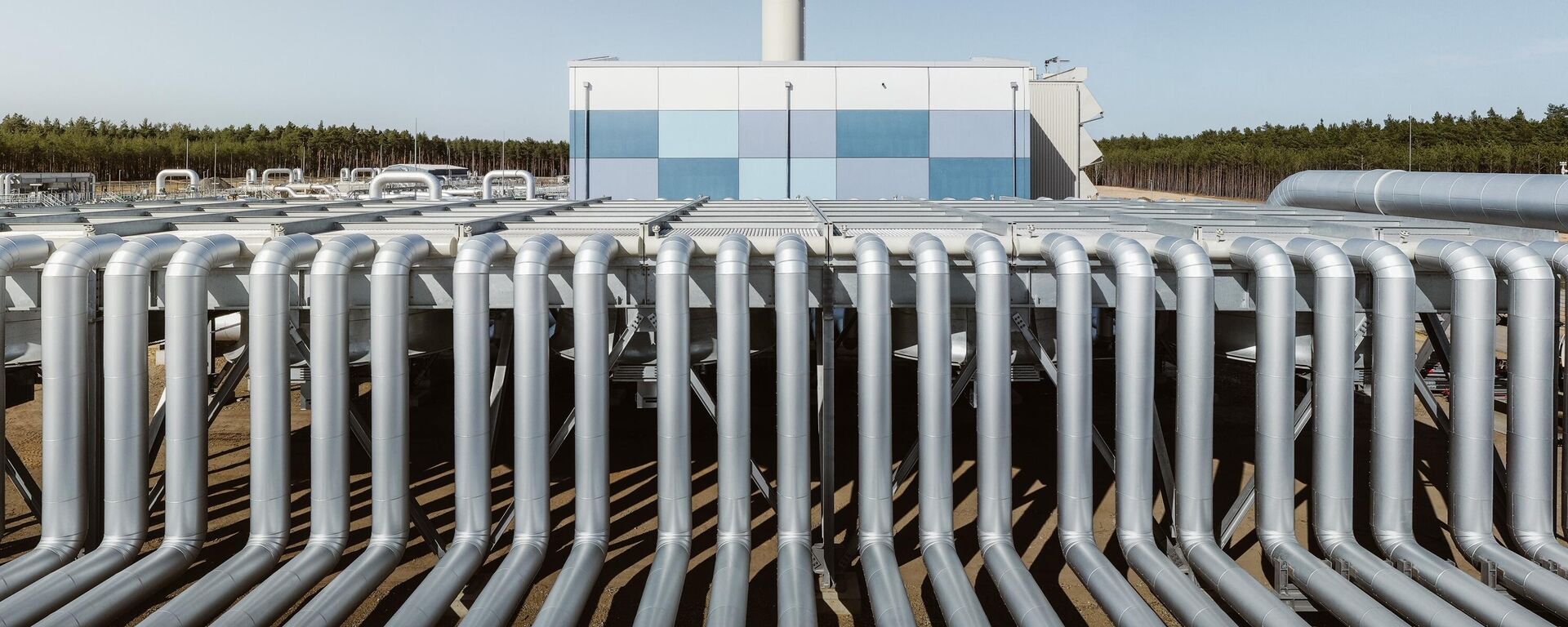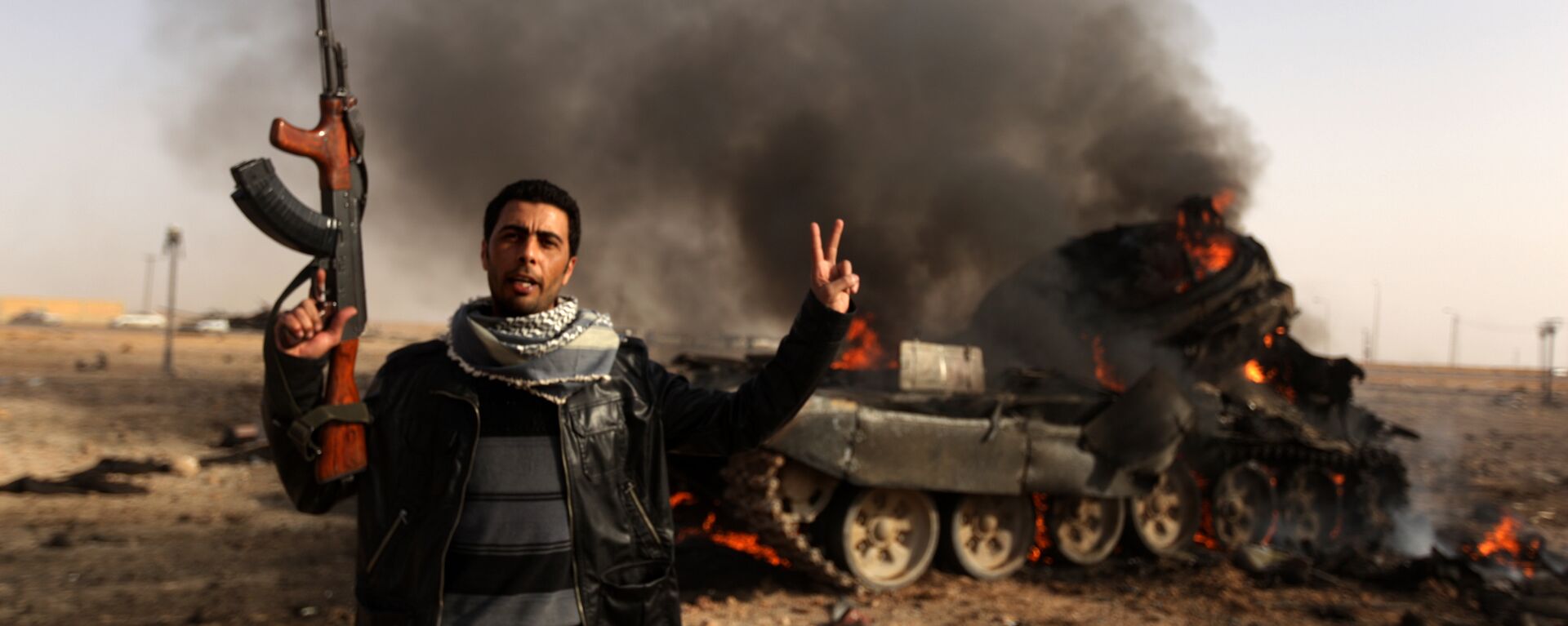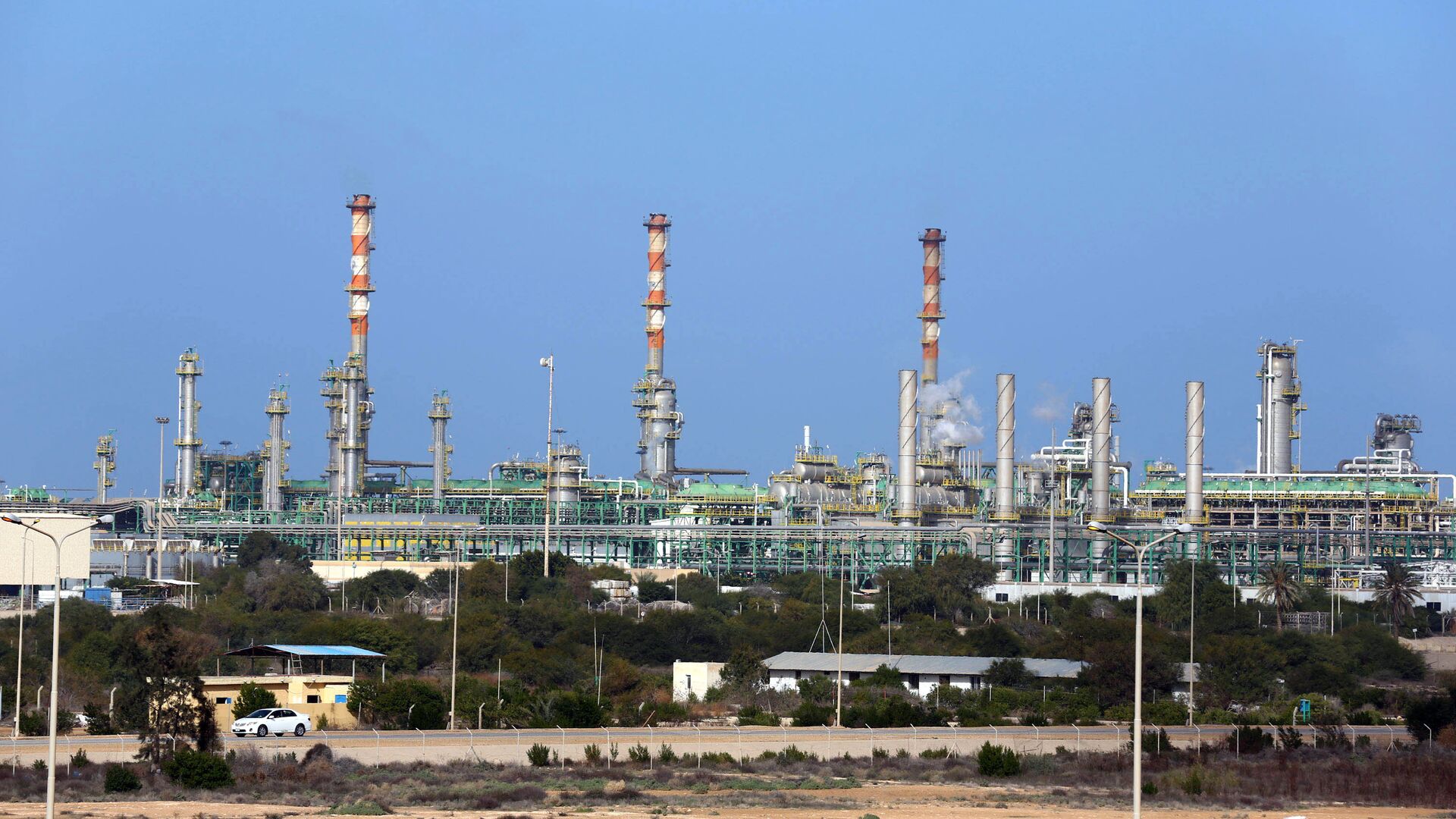https://sputnikglobe.com/20220125/us-studying-alternatives-to-russian-gas-in-north-africa-amid-ukraine-spat-white-house-says-1092512990.html
US Studying Alternatives to Russian Gas in North Africa Amid Ukraine Spat, White House Says
US Studying Alternatives to Russian Gas in North Africa Amid Ukraine Spat, White House Says
Sputnik International
Russian natural gas accounts for roughly 40 percent of Europe's consumption, including nearly half of the gas purchased by regional economic and industrial... 25.01.2022, Sputnik International
2022-01-25T17:40+0000
2022-01-25T17:40+0000
2022-11-15T14:17+0000
gas
https://cdn1.img.sputnikglobe.com/img/102482/45/1024824568_0:156:3001:1844_1920x0_80_0_0_df2eb218cbc5b0832c38ddb874d32831.jpg
The Biden administration is working to identify new volumes of non-Russian gas for Europe in North Africa amid fears of the potential disruption of Russian supplies due to tensions over Ukraine, White House press secretary Jen Psaki has announced."We're engaging with a range of countries and partners to discuss what could be shortages...A disruption of course of physical energy supplies transiting Ukraine would most acutely affect natural gas markets in Europe, so we're engaging our European allies to coordinate response planning including how to deploy their existing energy stockpiles. That's part of it," Psaki said, speaking to reporters in Washington on Tuesday.The US is also "engaging with major buyers and suppliers of LNG to ensure flexibility of existing contracts and storage," Psaki said.The spokeswoman suggested that this range of "contingencies" is being worked on in the event of a disruption in Russian supplies headed to Europe for "a range of reasons."The spokeswoman declined to comment on negotiations with any individual country or any other diplomatic conversations the US may be having with its partners on the matter.Psaki's comments follow reporting by US media last week about a global strategy being put together by Amos Hochstein, a senior advisor for energy security at the State Department, on the emergency redirecting of supplies, and the increasing of output, in the event of a sudden drop in Russian deliveries. Hochstein is the same official who expressed "concern" about gas shortages in Europe and blamed Russia for spiking prices after the US spent two straight years trying to torpedo the new 55 billion cubic meters of gas per year-capacity Nord Stream 2 pipeline.Earlier this month, several unidentified energy companies reportedly told the State Department that replacing Russian gas would be next to impossible, given the size of Russia's footprint in the global gas market.Ukraine is set to remain a major transit artery for Russian gas supplies heading westward until at least 2024 under the current contract between Moscow and Kiev, which nets Russia's neighbour billions of dollars in revenues annually in exchange for the transit of some 40 billion cubic meters of gas per year through its Soviet-era pipeline infrastructure. Ukraine itself claims that it hasn't purchased Russian gas since 2015, buying "European" gas from countries including Slovakia, Poland and Germany instead. However, subsequent investigations have discovered that most, if not all of the gas Kiev gets from the European Union is actually Russian, and that it is sold back to Ukraine at inflated prices by its European "partners."Libya, one of Europe's major North African suppliers of natural gas in decades past, has seen its production plummet by more than half since 2011 and the NATO-aided intervention to overthrow longtime Libyan leader Muammar Gaddafi, which turned the country into a failed state.
https://sputnikglobe.com/20211223/putin-links-european-gas-crunch-to-eu-buying-at-spot-markets-1091748541.html
https://sputnikglobe.com/20220115/intl-energy-firms-tell-us-they-lack-gas-to-replace-russian-supplies-to-europe-media-says-1092280253.html
https://sputnikglobe.com/20210215/there-was-no-revolution-libyans-reflect-on-decade-of-chaos-that-followed-gaddafis-ouster-1082084421.html
Sputnik International
feedback@sputniknews.com
+74956456601
MIA „Rossiya Segodnya“
2022
News
en_EN
Sputnik International
feedback@sputniknews.com
+74956456601
MIA „Rossiya Segodnya“
Sputnik International
feedback@sputniknews.com
+74956456601
MIA „Rossiya Segodnya“
gas
US Studying Alternatives to Russian Gas in North Africa Amid Ukraine Spat, White House Says
17:40 GMT 25.01.2022 (Updated: 14:17 GMT 15.11.2022) Russian natural gas accounts for roughly 40 percent of Europe's consumption, including nearly half of the gas purchased by regional economic and industrial powerhouse Germany.
The Biden administration is working to identify new volumes of non-Russian gas for Europe in North Africa amid fears of the potential disruption of Russian supplies due to tensions over Ukraine, White House press secretary Jen Psaki has announced.
"We're engaging with a range of countries and partners to discuss what could be shortages...A disruption of course of physical energy supplies transiting Ukraine would most acutely affect natural gas markets in Europe, so we're engaging our European allies to coordinate response planning including how to deploy their existing energy stockpiles. That's part of it," Psaki
said, speaking to reporters in Washington on Tuesday.
"But we've also been working to identify additional volumes of non-Russian natural gas from North Africa and the Middle East, Asia and the United States. We're in discussion with major natural gas producers around the globe to understand their capacity and willingness to temporarily surge natural gas output and to allocate these volumes to European buyers," she added.
The US is also "engaging with major buyers and suppliers of LNG to ensure flexibility of existing contracts and storage," Psaki said.

23 December 2021, 12:03 GMT
The spokeswoman suggested that this range of "contingencies" is being worked on in the event of a disruption in Russian supplies headed to Europe for "a range of reasons."
Psaki also assured US consumers that any possible disruption of Russian supplies to Europe would have a minimal impact on the United States itself, given the regional nature of gas markets.
The spokeswoman declined to comment on negotiations with any individual country or any other diplomatic conversations the US may be having with its partners on the matter.
Psaki's comments follow
reporting by US media last week about a global strategy being put together by Amos Hochstein, a senior advisor for energy security at the State Department, on the emergency redirecting of supplies, and the increasing of output, in the event of a sudden drop in Russian deliveries. Hochstein is the same official who expressed
"concern" about gas shortages in Europe and blamed Russia for spiking prices after the US spent two straight years trying to torpedo the new 55 billion cubic meters of gas per year-capacity Nord Stream 2 pipeline.
Earlier this month, several unidentified energy companies reportedly
told the State Department that replacing Russian gas would be next to impossible, given the size of Russia's footprint in the global gas market.

15 January 2022, 16:24 GMT
Ukraine is set to remain a major transit artery for Russian gas supplies heading westward until at least 2024 under the current contract between Moscow and Kiev, which nets Russia's neighbour billions of dollars in revenues annually in exchange for the transit of some 40 billion cubic meters of gas per year through its Soviet-era pipeline infrastructure. Ukraine itself claims that it hasn't purchased Russian gas since 2015, buying "European" gas from countries including Slovakia, Poland and Germany instead. However, subsequent investigations
have discovered that most, if not all of the gas Kiev gets from the European Union is actually Russian, and that it is sold back to Ukraine at inflated prices by its European "partners."
Libya, one of Europe's major North African suppliers of natural gas in decades past, has seen its production
plummet by more than half since 2011 and the NATO-aided intervention to overthrow longtime Libyan leader Muammar Gaddafi, which turned the country into a failed state.

15 February 2021, 16:10 GMT




